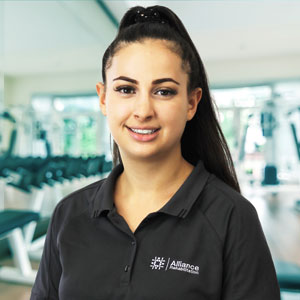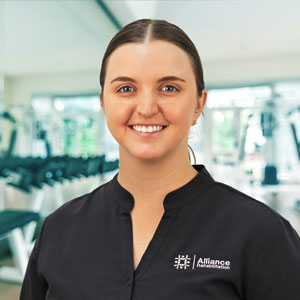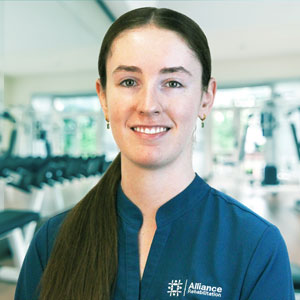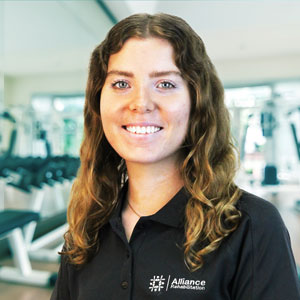Speech Pathology Services for Townsville & North Queensland
Below are the most commonly used terms you may hear in a speech pathology session.
Dysphagia is when a person has difficulty moving food around the mouth and swallowing. It can cause discomfort and can become dangerous if not treated as it can lead to/ increase the risk of aspiration.
Aspiration occurs when a foreign object enters the airway. For people who have difficulties with swallowing, they may be at an increased risk of food, drinks, or saliva entering their airway. This may also increase a person’s risk of chest infections (aspiration pneumonia). If someone aspirates at mealtimes, they may also be at an increases risk of choking.
Aphasia is a medical term used to describe difficulties or deficits associated with the use of spoken and written forms of language, which may result from neurological conditions such as stroke, dementia, or traumatic brain injury (TBI). Difficulties with language use may include difficulties with understanding verbal or written information, the ability to select the right word, and the ability to formulate written or spoken sentences to convey meaning. Aphasia can disrupt a person’s ability to read, write, and speak. This can significantly impact a person’s ability to fulfil tasks and activities associated with their everyday life.
Apraxia/Dyspraxia of speech is a term used to describe difficulties with motor planning of speech movements. Apraxia of speech occurs when messages for movement and coordination for speech are not successfully sent from the brain to the parts of the body responsible for speech (e.g. tongue, lips). Apraxia of speech may present as a person experiencing difficulties with consistently and correctly saying sounds, or difficulties with speaking. It causes a person to struggle with saying what they want correctly and consistently.
Dysarthria is a medical term used to describe difficulties with clearness of articulation and speech. Dysarthria may result from neurological injuries or conditions which affect nerve groups in our body responsible for speed, coordination, and strength of the body parts we use for production of speech.
Dysphonia is a term used to describe abnormal voice or difficulties with producing voice. Dysphonia may result from poor voice use, misuse over time, misuse habits (e.g. throat clearing), lifestyle factors (smoking, excessive alcohol use), environmental factors (e.g. talking over background noise), or medical conditions (e.g. reflux, stroke, TBI, Parkinson’s Disease).
Augmentative and alternative communication (AAC) is an alternative means of communication that can be used to support an individual who experiences difficulties with using verbal communication. AAC can be used by individuals across the lifespan, and includes multiple different forms (e.g. picture board, speaking generating devices, letter boards).
Stuttering is an involuntary repetition of sounds, words, or syllables. There are two types of stuttering: Developmental and Neurogenic stuttering. Developmental can develop at an early age and last through to adulthood if not addressed early. Neurogenic may occur after a neurological event such as a stroke or head trauma/ brain injury. The brain has trouble coordinating speech following the damage to different pathways and can cause problems producing clear, fluent speech.
Cognitive communication disorders present as difficulty with any aspect of communication affected by cognitive disruption. This includes attention, memory, organisation, and problem solving.
What is the difference between dysphagia and aspiration?
Dysphagia is a medical team that means ‘difficulty or discomfort in swallowing.’ This difficulty can be for many reasons and is often managed by modifying fluids, and swallowing rehabilitation exercises. Aspiration is a medical term that means ‘breathing in a foreign object’. Aspiration of food and fluids means that small amounts of drinks and food are going into the airway instead of down into the stomach, which can cause chest infections (pneumonia).
What to watch for?
- Coughing after eating or drinking any food or fluids.
- A feeling of food being stuck in your throat (like a lump) – i.e. choking.
- Having to swallow multiple times to clear a mouthful of food from your throat.
- Food being left behind in your mouth after swallowing.
- Difficulty chewing particular foods – i.e. fatigue.
- Taking a long time to finish a meal.
- Sudden spikes in temperature particularly soon after eating or drinking.
What can I do?
If you notice changes indicating difficulty swallowing it is important to seek advice from a speech pathologist. However, there are some basic strategies that can be used to decrease the chances of choking on food or fluids if swallowing difficulties arise.
- Ensure you are sitting fully upright throughout your meal. Remain seated upright for at least 20 minutes after you’ve finished eating or drinking.
- Ensure you have the TV turned off during mealtimes. Eliminating distractions during mealtime will allow you to focus completely on your eating your meal.
- Take small mouthfuls/sips and take only one bite at a time. Ensure you have finished one mouthful before taking another.
- Alternate mouthfuls of food and drink.
- Listen to your voice, if it sounds gurgly, swallow again.
- Stop eating if there is ongoing coughing or choking during eating.
- Take frequent pauses during the meal – don’t rush.
One of our participants has been completing Lee Silverman Voice Therapy (LSVT Loud). This is an intensive program designed for individuals with Parkinson’s Disease to improve loudness, vocal quality and intonation. This gentleman has been working hard for the past 4 weeks. Listen to his before and after recordings.
What do you think of his new voice?
When to See a Speech Pathologist
When is it time to see a Speech Pathologist if I am having difficulties with swallowing?
- When experiencing coughing, or the sensation of choking during or after eating or drinking.
- If you experience a feeling of food or drink getting stuck in your throat.
- Needing to swallow multiple times to clear a mouthful of food from your throat.
- Food being left behind in your mouth after swallowing.
- Food spilling out of your mouth.
- Difficulties with holding food in your mouth.
- Difficulties with chewing or breaking down food in your mouth.
- Difficulties controlling fluids when drinking.
- Recurrent (i.e. ongoing) chest infections resulting from an unknown cause.
- Feelings of fatigue or breathlessness when eating and drinking.
- Unexplained weight loss.
Speech Pathology Services Provided at Alliance Rehabilitation
Communication and swallowing are integral aspects of life and daily living. Our speech pathologists’ offer services for both paediatric and adult participants, of which may include:
Our paediatric services include (but are not limited to):
- Use of AAC systems to encourage engagement for children with non-verbal ASD or shorter attention spans.
- Education for parents, carers, or support workers. Sessions are hands on so the skills developed in sessions can be carried over to support your child outside of a clinical environment.
- Play based therapy – we work with you and your child to develop their potential communication skills for life and personal connections in and out of the classroom.
- Exercises to encourage the expression of thoughts, feelings, and ideas.
- Activities to target speech sound errors and articulation problems, as well as, identifying a list of key phrases to get across what you want to say consistently and clearly.
- Developing receptive (understanding what others are saying) and expressive (verbal expression, the words we actually say) language to improve communication. This includes following instructions and helping find the right words.
- Developing social skills such as turn taking, making friends, participating in conversation, eye contact, and interacting with peers.
Our adult and geriatric services include (but are not limited to):
- Evidence based assessment and rehabilitation of disorders affecting communication and swallowing including language difficulties (aphasia), motor speech disorders (apraxia and dysarthria), voice disorders (dysphonia), and swallowing difficulties (dysphagia).
- Assessment and provision of alternative and augmentative communication systems for participants who are unable to communicate their wants and needs verbally.
- Education for family, carers, and support workers about communication and swallowing disorders, and how to support an individual experiencing swallowing or communication difficulties.
- Mealtime assessments and reviews. (NDIS)
- Education and training to support diet and fluid modification, in line with The International Dysphagia Standardisation Initiative (IIDSI) guidelines and recommendations.
Examples of intervention and support from a speech pathologist may include:
What to Expect from an Initial Session?
An initial speech pathology session is important to help your clinician get to know you and for you to get to know them. Your sessions are a partnership, and you should feel comfortable. The first speech therapy session will involve a detailed assessment where your therapist will gather information from you or your carer/family including an interview and standardised assessments tailored to your individual needs. Your therapist will gather information regarding your Speech, Language, Communication, Voice, and Swallowing. At Alliance Rehabilitation, our treatment is client-focused and goal-oriented. We want to focus on what is important to you and establish meaningful long-term goals. We will break these down to more achievable short-term goals, while keeping the long-term in mind.
Based on the information you provide; your clinician will then collaboratively develop a tailored therapy plan for you; suited to your current ability and identified goals. The initial assessments will allow us to track your progress and modify your plan as you advance.
Multidisciplinary Approach to Therapy
Our speech pathologists’ work alongside our multidisciplinary team to deliver a well-rounded service for a variety of health and disability conditions. Case conferences between clinicians allows for strategy sharing and gives everyone a full picture of your needs to best support your personal goals.
Referral Options
There are many ways for you to be referred to our facility. We also travel to different locations in North Queensland, so location is never a barrier to your health and recovery. Our main office is in Townsville with outreach locations available in Ayr, Charters Towers, Richmond, Hughenden, Ingham, Palm Island, and Magnetic Island. Our Speech Pathologists are also able to provide community visits including home visits, school visits or educational centre visits for sessions – assessed on a case-by-case basis.
How is Alliance Rehabilitation different?
Alliance Rehabilitation’s client-centred, goal-based rehabilitation ensures the focus is always on you and your wellbeing. Our multidisciplinary team focus on wellness over illness and take the time to really understand the needs of each person’s rehabilitation journey to provide an individualised service. Our speech pathologists provide a comprehensive service including initial assessments, therapy planning, and monitoring to optimise your wellbeing.
Speech Pathology aims to increase your independence by giving you the tools to improve your speech and language skills, communicate with loved ones, eat and drink safely, and enjoy the things you love to get the most out of life.
.
.
References
- Communication Milestones. (2024). Retrieved from Speech Pathology Australia: https://www.speechpathologyaustralia.org.au/Public/Public/Comm-swallow/Speech-development/Communication-milestones.aspx?hkey=7debc110-9805-4eb6-ab63-db1fd0a97aaf
- Home. (2016). Retrieved from Speech Pathology Australia: https://www.speechpathologyaustralia.org.au/
- Information. (2020). Retrieved from Dementia Australia: https://www.dementia.org.au/information
- Information Sheets. (2020). Retrieved from Parkinson’s Australia: https://www.parkinsons.org.au/information-sheets
- Language. (2020). Retrieved from HeadStart: https://www.headstartis.com.au/services/speech-pathology/
- Speech Pathologists for People with Autism. (2021). Retrieved from Autism Association of South Australia: https://thespectrum.org.au/autism-support-services/professionals/speech-pathologists/
- Speech Pathology. (2021). Retrieved from Allied Health Professions Australia: https://ahpa.com.au/allied-health-professions/speech-pathology/
- The IDDSI Framework. (2019). Retrieved from International Dysphagia Diet Standardisation Initiative: https://iddsi.org/framework/
- What is LSVT Loud? (2021). Retrieved from LSVT Global: https://www.lsvtglobal.com/LSVTLoud

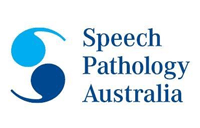 The Speech Pathologists at Alliance Rehabilitation are registered with
The Speech Pathologists at Alliance Rehabilitation are registered with 